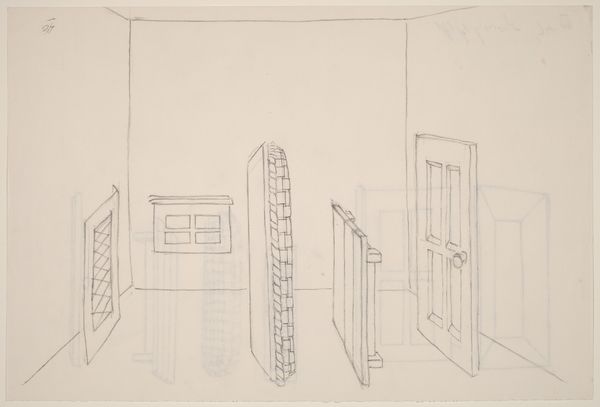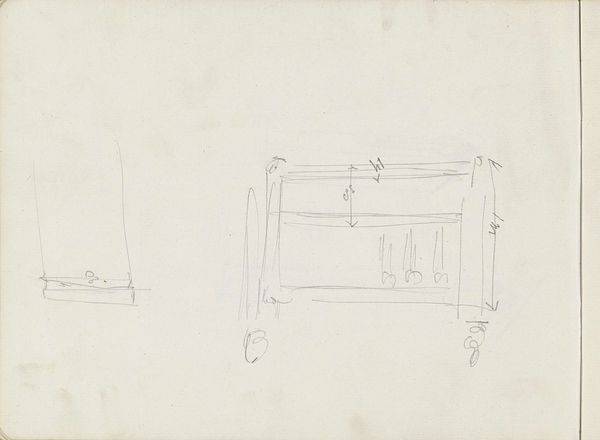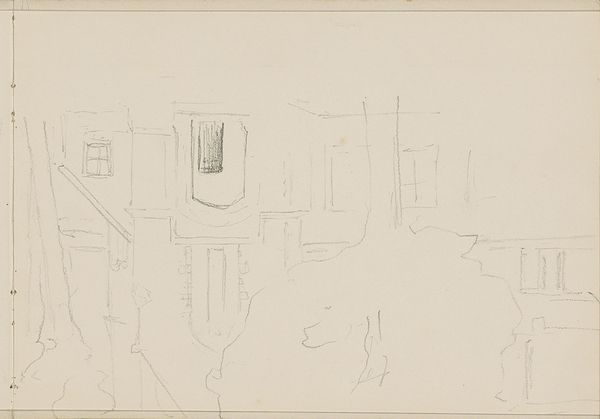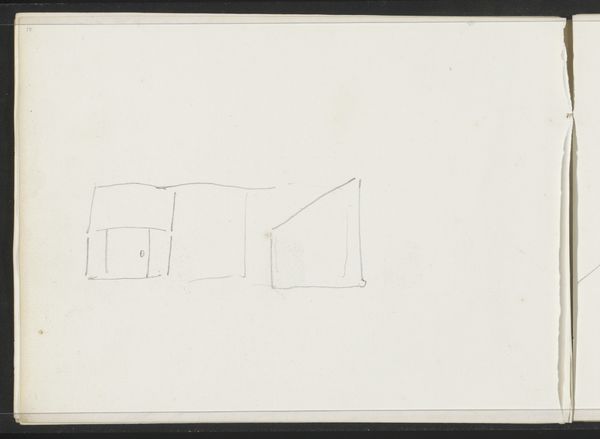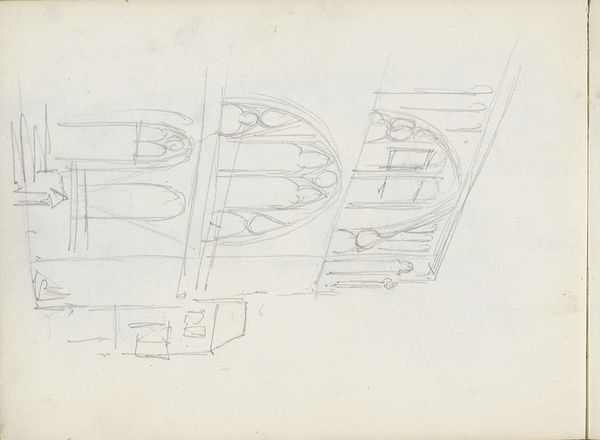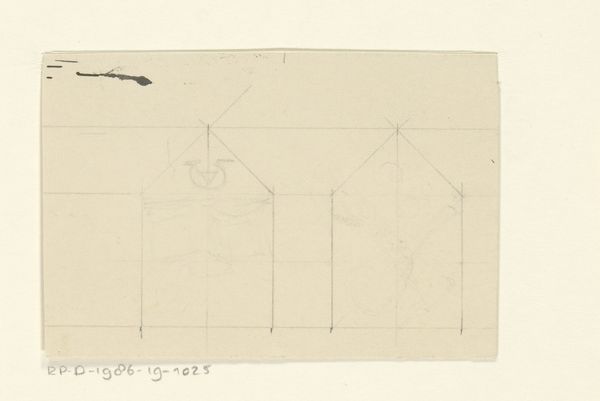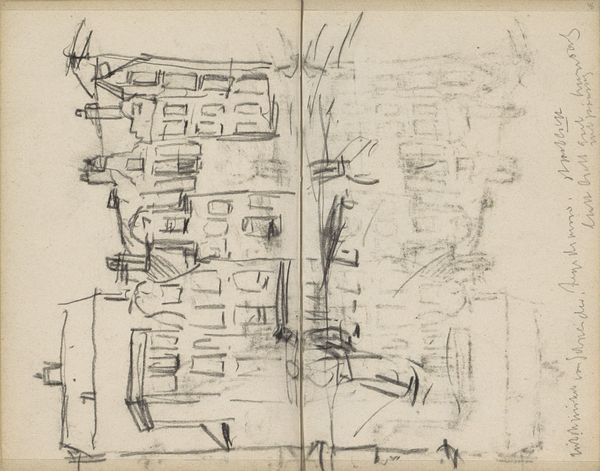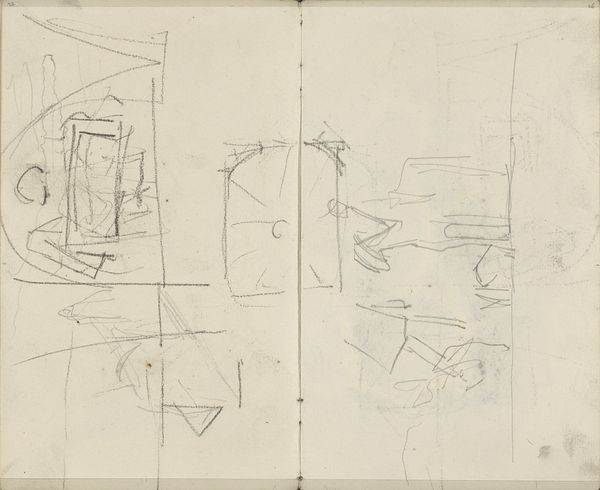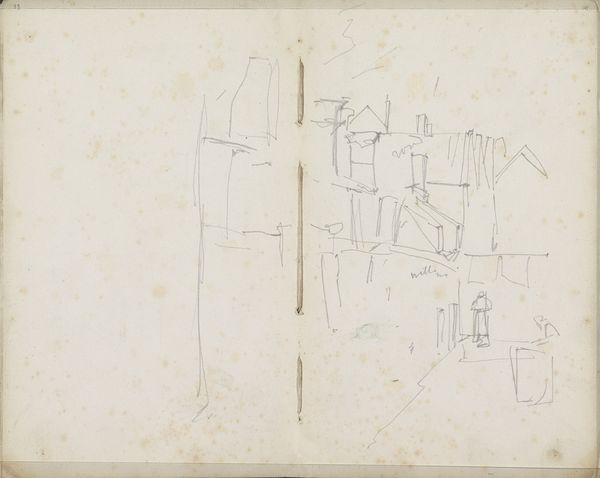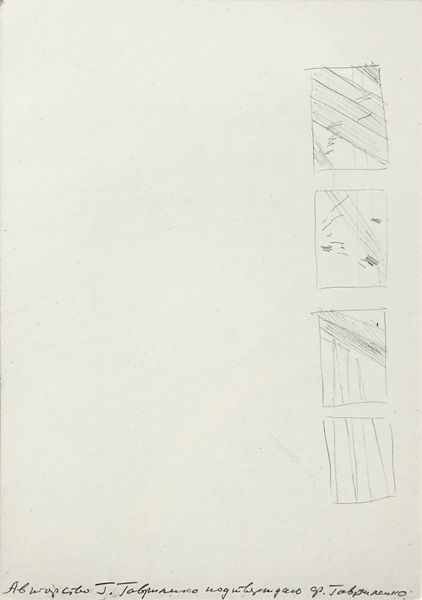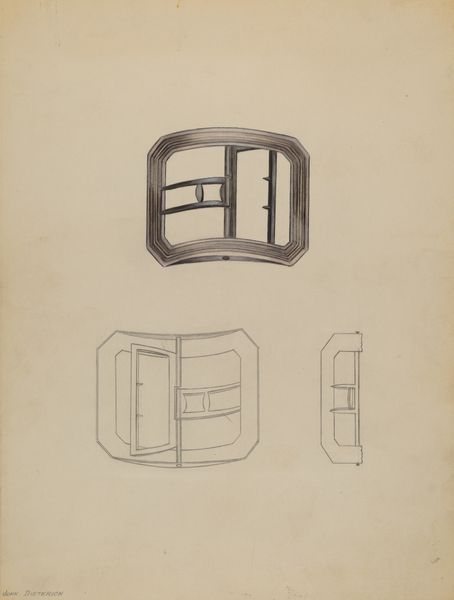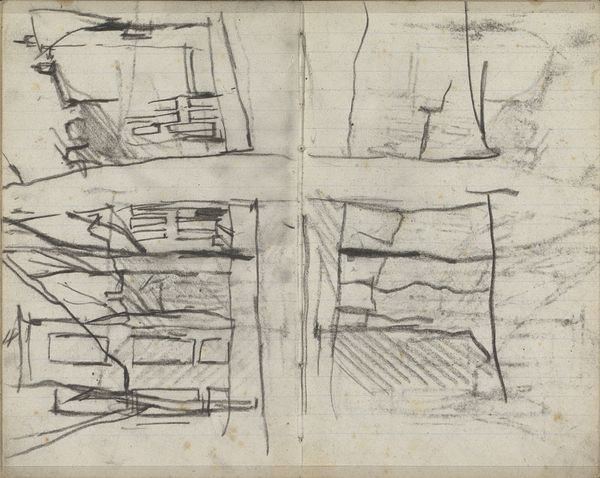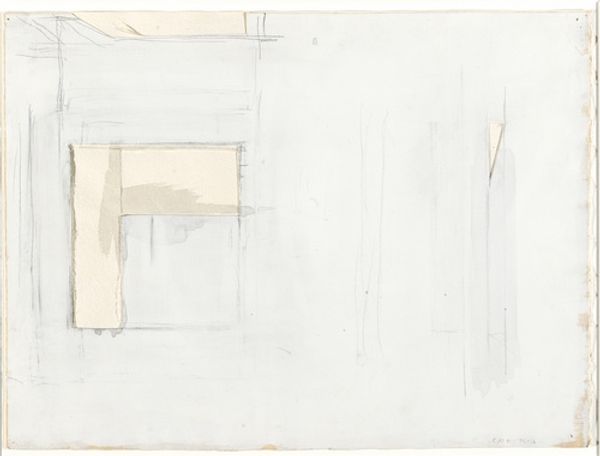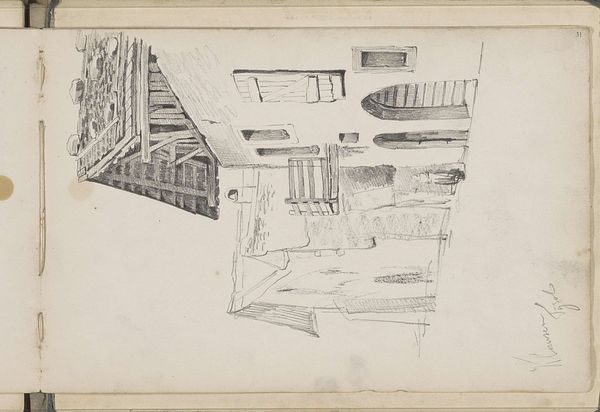![Basket, Table, Door, Window, Mirror, Rug #40 [verso] by Richard Artschwager](/_next/image?url=https%3A%2F%2Fd2w8kbdekdi1gv.cloudfront.net%2FeyJidWNrZXQiOiAiYXJ0ZXJhLWltYWdlcy1idWNrZXQiLCAia2V5IjogImFydHdvcmtzLzdlMzcxMTIzLWY0NTgtNDY5OC1hYTQ5LWY2ZjNkYTNmOWJmNC83ZTM3MTEyMy1mNDU4LTQ2OTgtYWE0OS1mNmYzZGEzZjliZjRfZnVsbC5qcGciLCAiZWRpdHMiOiB7InJlc2l6ZSI6IHsid2lkdGgiOiAxOTIwLCAiaGVpZ2h0IjogMTkyMCwgImZpdCI6ICJpbnNpZGUifX19&w=3840&q=75)
Basket, Table, Door, Window, Mirror, Rug #40 [verso] 1974
drawing, pencil
drawing
geometric
pencil
Dimensions: overall: 19.9 x 29.5 cm (7 13/16 x 11 5/8 in.)
Copyright: National Gallery of Art: CC0 1.0
Curator: Here we have Richard Artschwager's pencil drawing, "Basket, Table, Door, Window, Mirror, Rug #40," created in 1974. Editor: My first thought is: "deconstructed." The isolated, seemingly weightless forms hover like disassembled components of domestic life. Curator: Artschwager was fascinated by how everyday objects accumulate meaning through their repeated use and presence. Note the careful rendering, almost diagrammatic, of each item. He pulls these objects out of their expected contexts, causing us to reconsider their roles in our lived experience. The mirror in particular stands out for its emptiness. What happens when reflection is removed? Editor: Right, by dislocating the object, it reveals deeper power structures within supposedly banal spaces, right? This image reminds us of the unacknowledged labor of homemaking, predominantly imposed upon women of color and immigrant women since time immemorial, for example. These aren't just "things" they represent coded social spaces with complex gender, economic, and political meaning. I’m looking at these items asking about who maintained, polished, paid for, and moved all of it. Who *didn’t* get reflected in the mirror of that period, and who wasn't able to access such domesticity at all? Curator: That's a powerful way to contextualize the piece, certainly one that speaks to his consistent desire to interrupt and ask questions. Each chosen item is so basic and prevalent, yet so culturally rich and historically embedded with tradition, too. In drawing from memory rather than immediate observation, perhaps Artschwager was striving to create these symbols that stand apart. These symbols, which have a shared experience from domestic environments but are free for personal association within each observer, become highly emotive and subjective images. Editor: Exactly. Decontextualizing can become a revolutionary act. As it prompts dialogue regarding the unasked, often avoided associations surrounding domestic spaces, especially how this idealized space isn't available for all in an equal manner, especially under a capitalist market. Curator: This resonates so well for me, the emotional power of simple forms laid bare to the individual observer's associations, as if Artschwager has captured an archetypal blueprint. Editor: Agreed. "Basket, Table, Door, Window, Mirror, Rug #40" is a reminder that objects are rarely "just objects."
Comments
No comments
Be the first to comment and join the conversation on the ultimate creative platform.
